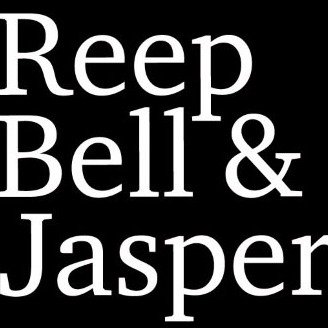Best Financial Services Regulation Lawyers in Montana
Share your needs with us, get contacted by law firms.
Free. Takes 2 min.
Or refine your search by selecting a city:
List of the best lawyers in Montana, United States
About Financial Services Regulation Law in Montana, United States
Financial Services Regulation Law in Montana is a complex legal field that governs how banks, credit unions, mortgage companies, loan originators, money transmitters, investment advisers, and other financial institutions operate within the state. The underlying goal of these regulations is to ensure the stability, fairness, and transparency of Montana's financial marketplace. Federal laws set a baseline for regulatory requirements, but Montana also has its own statutes and administrative rules designed to address local concerns, protect consumers, and ensure fair practices in lending, investments, and financial product offerings.
Why You May Need a Lawyer
Engaging with the world of financial services can be challenging due to the intricate web of local and federal regulations. You may need a lawyer specializing in Financial Services Regulation in situations such as:
- Starting a new bank, credit union, or other financial services company in Montana
- Obtaining or renewing state licenses or charters for lending, investments, or money transmission
- Navigating state compliance audits or facing enforcement actions from regulatory bodies
- Addressing allegations of unfair, deceptive, or abusive practices
- Structuring new financial products and services, such as fintech offerings
- Responding to consumer complaints or lawsuits
- Understanding the obligations under state consumer protection and usury laws
- Purchasing or merging with another regulated financial entity
- Ensuring anti-money laundering and data privacy compliance
- Handling disputes with regulators, customers, or other financial institutions
Local Laws Overview
Montana’s financial services industry is regulated by a combination of federal oversight and state-specific laws. The Montana Department of Administration - Division of Banking and Financial Institutions is the primary agency enforcing Montana's financial regulatory framework. Montana has laws addressing the licensing, operation, and regulation of banks, credit unions, mortgage lenders, loan servicers, sales finance companies, money transmitters, and more.
Key local aspects include:
- Licensure Requirements: State law generally requires financial service businesses to obtain specific licenses to operate legally in Montana. Different categories exist for banks, credit unions, mortgage companies, money transmitters, and collection agencies.
- Consumer Protection: Montana state law enforces rigorous standards for consumer lending, including limits on interest rates (usury laws), mandatory disclosures, and specific rules regarding fair lending and debt collection practices.
- State Examinations: State regulators routinely conduct examinations and audits to ensure ongoing compliance with applicable laws and regulations.
- Enforcement Authority: The state can impose civil penalties, suspend or revoke licenses, and pursue legal action to uphold its regulatory standards.
- Local Variations: Montana does not have state-chartered industrial loan companies, but does regulate other niche financial services like escrow companies and consumer loan companies.
- Federal Coordination: State regulatory agencies often act in conjunction with federal counterparts, including the Consumer Financial Protection Bureau, the Federal Deposit Insurance Corporation (FDIC), and others.
Frequently Asked Questions
What is the Division of Banking and Financial Institutions in Montana?
This is the state agency responsible for regulating and licensing banking and various non-bank financial service providers in Montana. They oversee compliance, enforce state banking laws, and conduct routine examinations.
Do I need a license to offer consumer loans in Montana?
Yes, Montana law requires anyone making consumer loans to residents of the state to obtain a license from the Division of Banking and Financial Institutions. There are specific requirements, fees, and ongoing compliance obligations.
How does Montana regulate interest rates on consumer loans?
Montana has usury laws that cap the maximum interest rate that can be charged on most types of consumer loans, with some exceptions. The exact ceiling can depend on the type of loan and current federal rates.
Are there special rules for mortgage brokers and originators in Montana?
Yes, both mortgage brokers and originators must be licensed, comply with education and testing requirements, and adhere to detailed consumer disclosure and fair lending standards under both state and federal law.
What should I do if a financial services firm is operating without a license?
You can report unlicensed activity to the Division of Banking and Financial Institutions. The agency may investigate and take action, which can include fines and shutting down illegal operations.
How are complaints against banks or financial institutions handled?
Consumers can file complaints directly with the Division. The state will review the matter, may conduct an investigation, and can require the institution to respond or take corrective action if wrongdoing occurred.
What are the most common compliance issues faced by financial institutions in Montana?
Common issues include incomplete consumer disclosures, improper interest rate calculations, improper debt collection, unlicensed activity, and failure to follow anti-money laundering or data privacy protocols.
How can a business ensure ongoing compliance with Montana’s financial regulations?
Regularly review changes to state laws, maintain robust internal policies and training, undergo independent audits, and seek legal counsel for complex or uncertain areas of the law.
Can the state close a bank or financial services firm?
Yes, in cases of severe non-compliance, financial instability, or fraudulent activities, the Division of Banking and Financial Institutions has the authority to revoke licenses or close operations.
Are cryptocurrency businesses regulated in Montana?
Montana does not have a specific regulatory framework for cryptocurrency companies, but businesses may be subject to money transmitter laws or other applicable financial service regulations depending on the services offered.
Additional Resources
If you need further information or assistance regarding Financial Services Regulation in Montana, consider reaching out to:
- Montana Department of Administration - Division of Banking and Financial Institutions: The key state regulator for banks, credit unions, mortgage companies, and money service businesses.
- Montana Office of Consumer Protection: Provides guidance for consumers and oversees fair business practices, including in financial services.
- Consumer Financial Protection Bureau (CFPB): Federal agency offering resources, complaint resolution, and consumer education.
- Montana State Bar Association: Can refer you to attorneys specializing in financial services regulation.
- US Securities and Exchange Commission (SEC): For issues relating to securities regulation.
Next Steps
If you require legal assistance relating to Financial Services Regulation in Montana, start by documenting your specific issue, gathering any relevant contracts, correspondence, and notices. Consult the website of the Montana Division of Banking and Financial Institutions for guidance and regulatory requirements. Consider contacting a lawyer experienced in financial regulatory matters for a consultation. Remember, early legal guidance can often prevent larger compliance or legal problems down the line. If your situation is urgent, promptly reach out to both the appropriate regulatory authority and qualified legal counsel to ensure your rights and interests are protected.
Lawzana helps you find the best lawyers and law firms in Montana through a curated and pre-screened list of qualified legal professionals. Our platform offers rankings and detailed profiles of attorneys and law firms, allowing you to compare based on practice areas, including Financial Services Regulation, experience, and client feedback.
Each profile includes a description of the firm's areas of practice, client reviews, team members and partners, year of establishment, spoken languages, office locations, contact information, social media presence, and any published articles or resources. Most firms on our platform speak English and are experienced in both local and international legal matters.
Get a quote from top-rated law firms in Montana, United States — quickly, securely, and without unnecessary hassle.
Disclaimer:
The information provided on this page is for general informational purposes only and does not constitute legal advice. While we strive to ensure the accuracy and relevance of the content, legal information may change over time, and interpretations of the law can vary. You should always consult with a qualified legal professional for advice specific to your situation.
We disclaim all liability for actions taken or not taken based on the content of this page. If you believe any information is incorrect or outdated, please contact us, and we will review and update it where appropriate.
Browse financial services regulation law firms by city in Montana
Refine your search by selecting a city.













